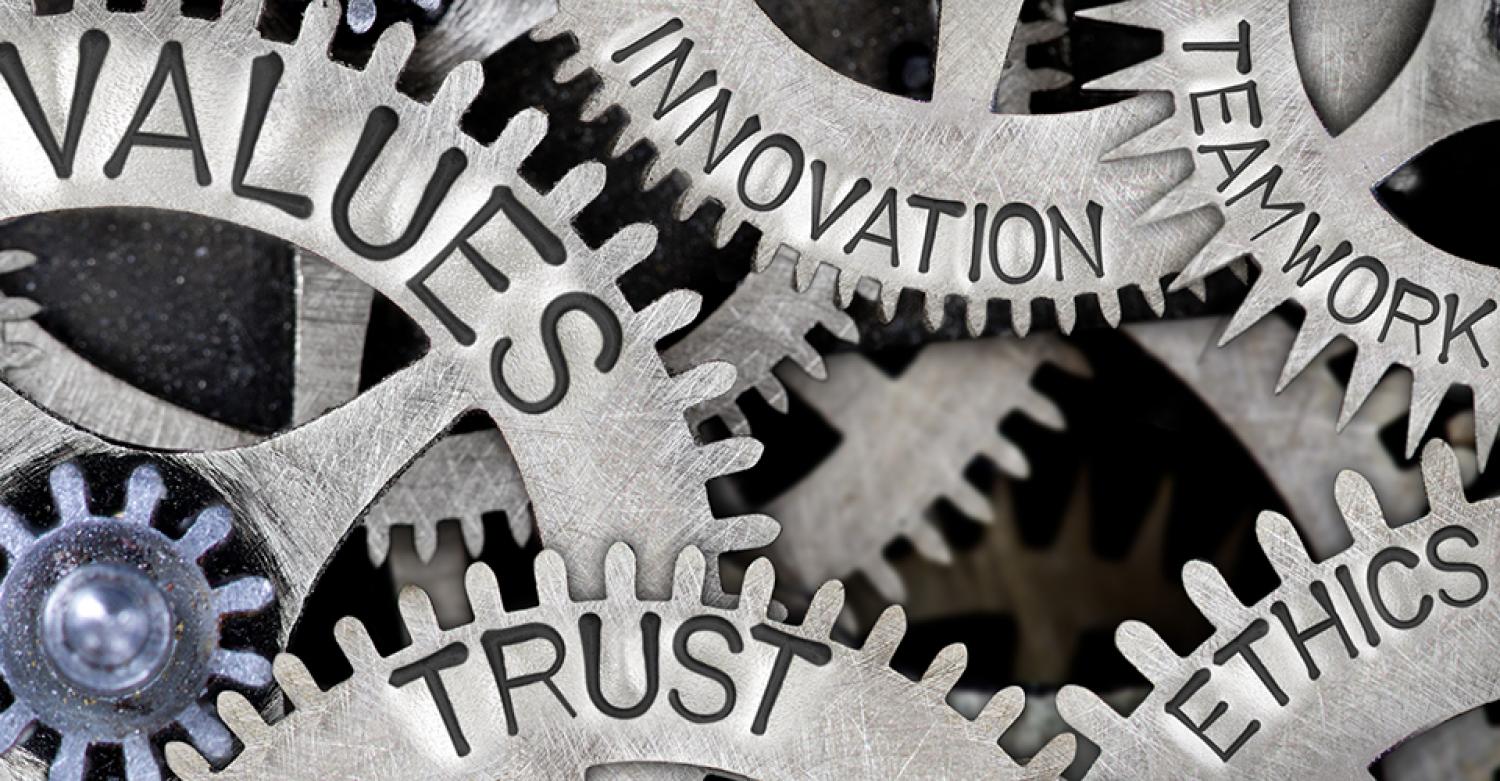Why Ethics Matter All the Time—Not Just Amid a PR Crisis

Most business owners will tell you ethics are important, but rarely will they consider ethical issues to be in the same category as core focus areas like finance or marketing.
Joshua Nunziato said that’s a big mistake—and that ethics can play just as large a role as other considerations when it comes to a company’s success or failure.
Nunziato, an ethics expert and the campus leader for the Daniels Fund Ethics Initiative Collegiate Program at the University of Colorado Boulder, has spent his career studying how businesses thrive and fail depending on how—and when—they employ ethical business practices. These real-world examples become case studies for his students to see just how important ethics are in business.
Ethics isn't a dogma teachers impose on their students, Nunziato said. Instead, it’s a conversation about how we express our deepest values, aspirations and convictions together through common purposes, ordered by organizations like corporations.
Nunziato shared his perspectives on ethical leadership and why it’s especially important for professionals looking to make the leap from mid- to senior-level management.
Fundamentally, leadership happens inside out. It begins with your inner life, then gets expressed in how you inspire, motivate, guide and galvanize groups to accomplish shared objectives for collective benefit.
In order to lead others well, it's vital to first cultivate self-awareness and consciousness in yourself. If you know who you are and what you want—and have your inner life in balance—you'll be able to authentically challenge others to lead from within. When members of a group do that together, it creates the conditions necessary for psychological safety, savvy interdependence and organic collaboration—the magic ingredients of effective teams and organizations.
Ethical leadership is closer to “grace under pressure” than it is to “being nice.”
One of my business heroes, Jerry Colonna—a legendary startup coach and successful VC—challenges entrepreneurs to lead with a strong back and an open heart. This guidance—delivered through his coaching sessions marked by "radical self-inquiry" and insightful conflict resolution—has empowered him to shape the leaders and cultures of dozens of the most dynamic and innovative companies in the United States.
Empathy matters so much for contemporary leadership because we live in a culture in which people value being seen and recognized.
Empathy is fundamentally about feeling with others. When people experience empathy, they are more likely to practice it, and when a culture is marked by empathic relationships, you have conditions ripe for purposeful, collaborative work. People feel safe to innovate, challenge and explore.
The word ethics comes from the same word as “ethos.” Ethics is closely related to culture—the “vibe” of an organization.
It's how things (really) work in the interpersonal relationships that enable people to accomplish things together. If you have an unethical culture, you have an organization with a lot of sand in the gears: A lack of transparency, authenticity, respect and fairness increases interpersonal friction while encouraging burnout, cynicism and “quiet quitting”—all things that sap the esprit de corps of an organization. These features are especially bad in a tight labor market, in which many workers are demanding purpose-driven organizations and authentic workplace cultures that align with their values. Ethical leadership is key for cultures that keep people feeling engaged and satisfied because they are encouraged to show up as their authentic selves.
The common theme around the role of ethics in successful cultures is that it’s always a top of mind issue, and not something to consider after a disaster or in the midst of a PR problem. That’s why it’s so important for aspiring leaders to celebrate and prioritize ethics for themselves and their teams, and it’s why Leeds puts the interplay between leadership and ethics at the core of its LEED—Leadership, Ethics, Executive Decision Making—program. In addition to other core business skills, this one-week program teaches you how to create a culture that values ethics in every decision, not just in crisis. If you’re ready to discover your authentic, ethical leadership style, this immersive executive leadership experience, delivered by Leeds faculty in Boulder, might be just what you need. Seats are filling fast for the May 2024 session; register for the program now or learn more here.







